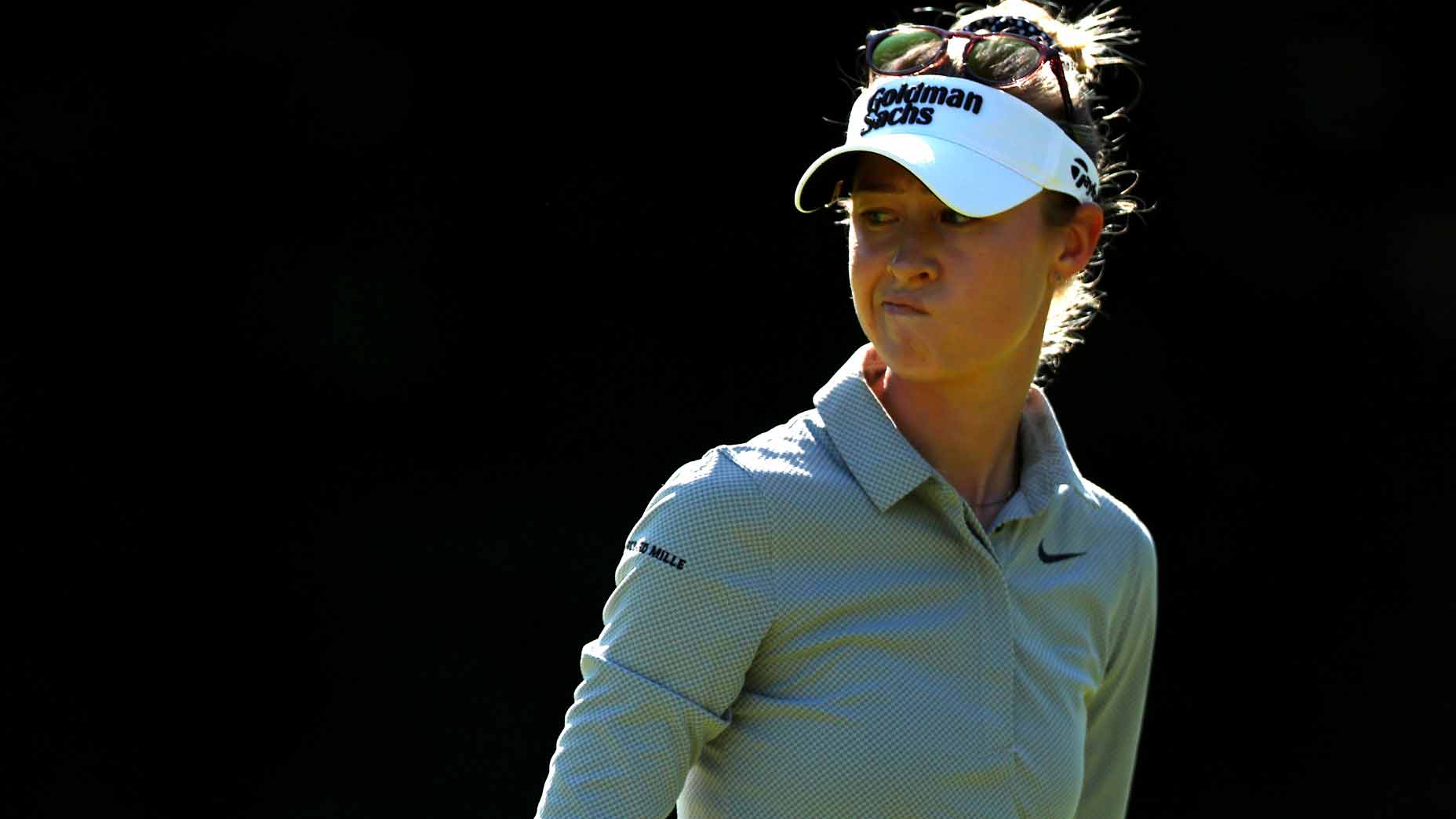
Following the Evian Championship slow-play controversy, Nelly Korda endorsed the strict enforcement by rules officials.
Getty Images
Slow play is an on-going hot topic in the world of golf. It’s bemoaned in grill rooms at munis, posts on social media and in press conferences on the pro circuits. These days there aren’t many issues that bring everyone together, but hatred of slow play is one of them.
But even with this near-unanimous opinion on slow play, pace-of-play issues still arise. Take two weeks ago at the Evian Championship as an example. Carlota Ciganda, while grinding to make the cut, was assessed a two-stroke slow-play penalty on the final hole for taking more than the allotted time to hit a putt while on the clock. When she refused the penalty and signed her scorecard anyway, she was disqualified.
“Very poor performance from the LPGA rules official, they don’t understand what professional golf is about, they only look at their stopwatch like if 20 seconds is going to make a difference,” Ciganda later wrote in an Instagram post. “I had family and friends watching and they all said it was impossible I took that long to hit that putt!”
This was not the first time Ciganda was at the center of a slow-play controversy. At the 2021 LPGA Match Play, the 33-year-old was assessed a slow-play penalty on the final hole of her match with Sarah Schmelzel. As a result of that penalty, Ciganda lost the hole — and the match — knocking her out of the event.
“Yesterday was tough out there with windy conditions and difficult pins,” Ciganda’s continued. “I wish everyone gets treated the same and they don’t pick on the same players all the time!”
But Nelly Korda, the current world No. 1, offered a different perspective on the ordeal. When asked about the Evian slow-play controversy at this week’s AIG Women’s Open, she told the media she’s in favor of the strict enforcement of the rule.
“At the end of the day, The Rules of Golf are The Rules of Golf and they should be enforced,” Korda said. “I really like Carlota. She’s a great person. I enjoy playing with her. I am a fast player, but I would say at the end of the day The Rules of Golf are The Rules of Golf, and it’s good that it’s being enforced.”
Slow play, she pointed out, isn’t just problematic for the players on the course. It impacts the product for fans, too. When things grind to a halt during tournaments, the viewing experience can suffer.
“If I was a spectator and I was out here for 5 1/2 hours to 6 hours, you know, it’s tough to watch,” Korda said. “You want to watch a sport that’s continuously moving and not continuously stalling. I would say I think it’s really important for the rules officials to enforce The Rules of Golf.”









